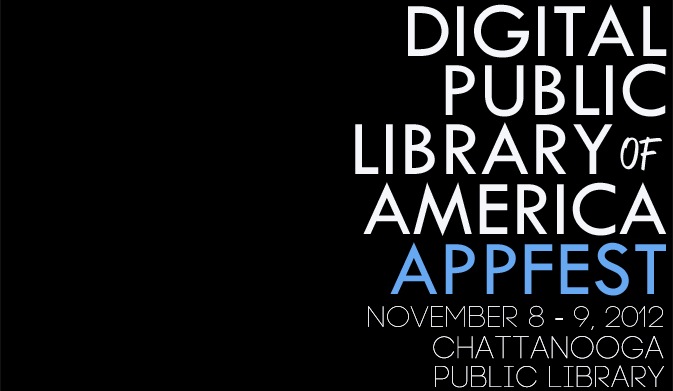Appfest | Apps | Agenda | Livestream | Storify
The Digital Public Library of America (DPLA) thanks all who participated in our first Appfest, an informal, open call for both ideas and functional examples of creative and engaging ways to use the content and metadata in the DPLA back-end platform. The first Appfest took place on November 8-9, 2012, at the Chattanooga Public Library on The 4th Floor.
Appfest was an opportunity for developers, designers, hackers, and others interested in the DPLA to develop web and mobile apps, data visualization hacks, dashboard widgets to spice up an end-user’s homepage, or other compelling projects. There were no strict boundaries on the types of submissions accepted, except that they be open source (the DPLA platform is released under a AGPLv3 license) and interoperable with the DPLA platform. Participants were asked to pitch ideas for apps on the DPLA Appfest wiki page before the event, as pitches made on the wiki informed what was made on Friday, November 9th.
For inspiration, participants were asked to consider building or pitching an app that recommends cultural heritage content such as maps and photographs based on user preferences or a certain set of criteria, an app that helps kids find content related to the topic of their upcoming history paper, or an app that visualizes metadata in new and interesting ways. Any number of approaches to building or pitching an app that utilizes the DPLA platform were open for exploration. Participants were asked to note that the platform will largely contain cultural heritage data from the DPLA’s seven service hubs, as part of the Digital Hubs Pilot Project. We encouraged participants to make their development process open, sharing their designs and sketches and draft code as it developed.
You can view pitch ideas on the DPLA Appfest wiki page here.
You can learn more about the DPLA platform and API here.
You can learn more about the service hubs and DPLA content here.
